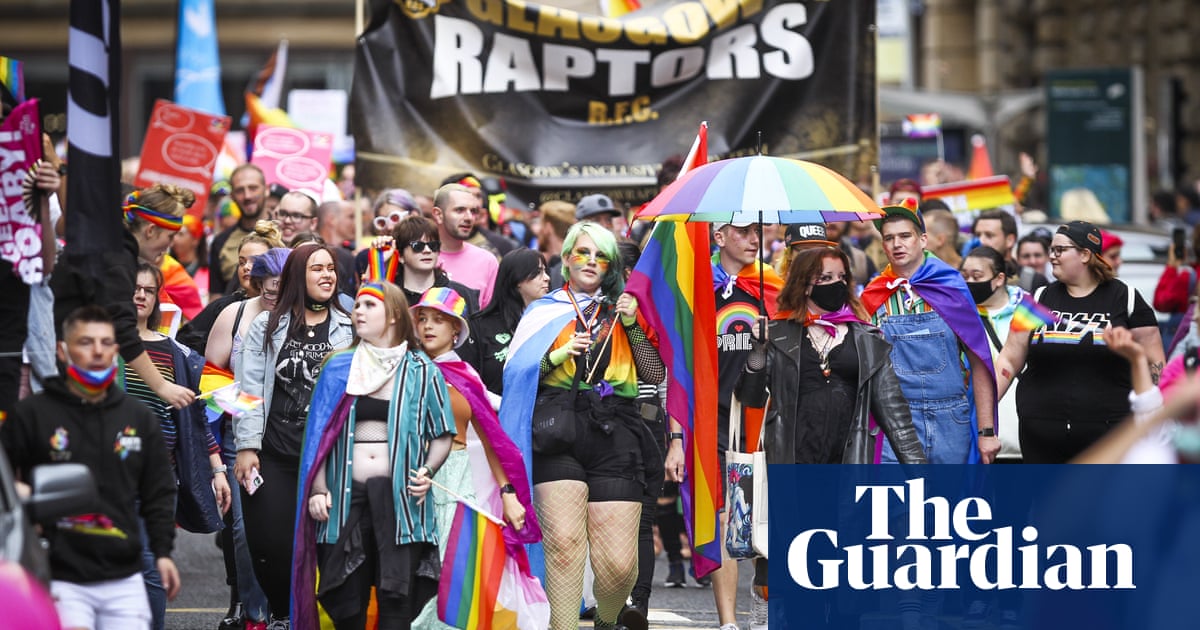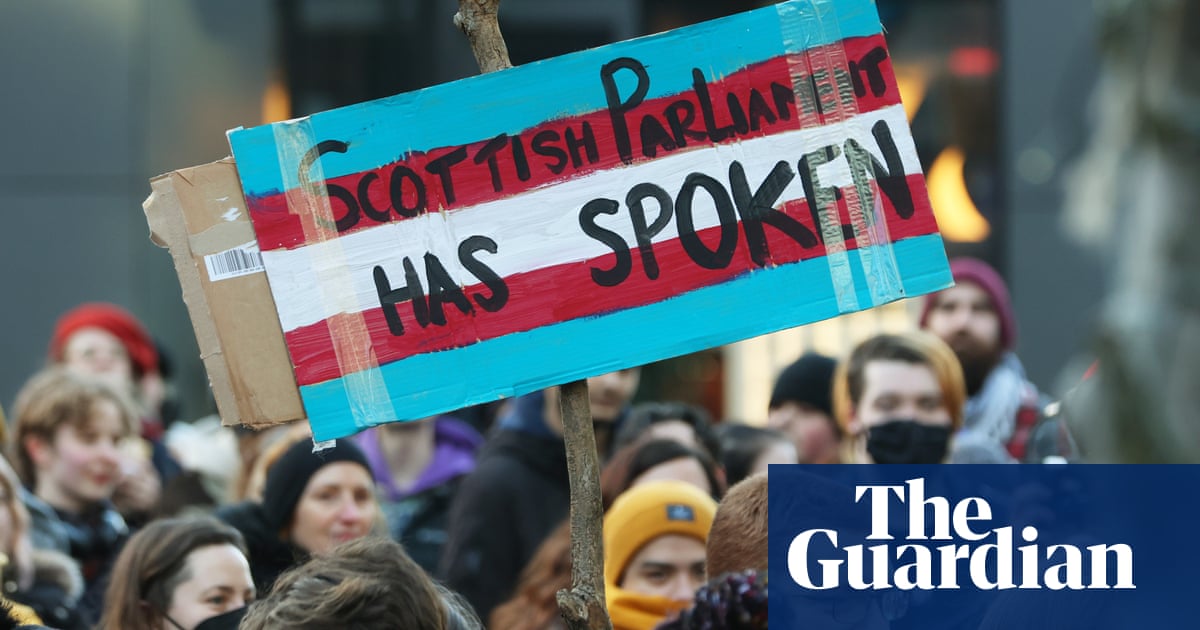
MSPs have been urged to keep foremost in their minds that trans people are “human beings wanting to go about their daily lives”, as a Holyrood committee begins taking evidence on a draft bill that aims to streamline the process by which an individual can change their legal sex.
Colin Macfarlane, the director of Stonewall Scotland, told members of the Scottish parliament’s equalities, human rights and civil justice committee: “There has been a whipping up of a moral panic and an othering of trans people in the public discourse. Trans people are not an ideology – trans people are our friends, our family and our colleagues.”
Gender recognition reform is supported by every party in Holyrood bar the Scottish Conservatives but has been fiercely contested by some groups who argue it will fundamentally alter who can access women-only services, and complain they have not been adequately consulted.
At the first public evidence session, Melanie Field, the chief strategy and policy officer for the Equality and Human Rights Commission (EHRC), called for more detailed consideration before legislative change was made, to ensure any reform was as “accepted and uncontroversial” as equal marriage.
Field reflected that with the introduction of equal marriage, “concerns were able to be expressed and addressed and the legislation was constructed in such a way that appropriate safeguards were built into it. The result was the equal marriage is now accepted and uncontroversial and that is what I would like to happen here.”
Asked how she would square the commission’s call for more information about the impact of change despite two public consultations since 2017, Field said she could “understand the frustration of trans people who have had promises held out” but: “As a regulator of the law, our guiding principle is that the impact of legislative change should be understood.”
At the bill’s first evidence session, LGBT+ campaigners also expressed reservations about the current draft. Vic Valentine, the manager of Scottish Trans Alliance, said “the lack of recognition for non-binary people is the part of the bill that trans men and trans women are most disappointed about”, and prevented it being an “ambitious” change to the law.
Valentine added that the requirement for applicants to have lived in their preferred gender for a specific time period was considered “arbitrary” by the trans community, who also thought the proposed three-month “reflection period” to be unnecessary, given the amount of consideration and social transition done by individuals before they applied for a certificate.
Macfarlane said Stonewall Scotland was “extremely concerned” the current drafting of the bill could allow vexatious application for revocation of a certificate, for example by family members who were opposed to a person’s decision or even by a lobby group opposed to the change itself.
Macfarlane told the committee the reforms would have no impact on the Equality Act – which affords protection from discrimination on the basis of sex, race, religion, gender reassignment and other characteristics. However, later in the session EHRC representatives said further examination was required of the implications of recent court cases on evolving legal concepts of sex, for example.
But Macfarlane said he wanted to highlight “this presentation of trans people and trans women in particular as a threat”, stating it was “deeply unfortunate … that there has been misinformation, some of it deliberate, around what the provisions of this bill will mean for the impact of women and girls”.












